Where to Start With Shakespeare
5 essential plays...
William Shakespeare is the most famous writer in the English language — but for many, he’s also the most intimidating.
Archaic vocabulary and complex plots can often feel more like barriers than invitations to his work. But fortunately, this is only the case if you start with the wrong play. Since Shakespeare wrote for popular audiences, many of his plays are in fact quite easy to enjoy, even despite the changes in the English language over the past 400 years.
If you want to get into Shakespeare, the key is to choose a first play that speaks clearly — one that has an interesting (and easy-to-follow) plot, relatable characters, and enough depth to keep you coming back. Fortunately, several of the Bard’s greatest works check all three of these boxes.
Today, we highlight the five best Shakespeare plays for beginners, so that you too can begin to fall in love with the beautiful work of history’s greatest playwright…
Reminder: you can support our mission and get tons of members-only content for a few dollars per month:
Full-length articles every Wednesday and Saturday
Members-only podcasts and exclusive interviews
The entire archive of great literature, art, and philosophy breakdowns
Much Ado About Nothing
If you want a Shakespeare play that delivers laughter, warmth, tension, drama, and emotional payoff, start here.
At its heart, Much Ado About Nothing is a romantic comedy. Two lovers are about to be married when a scheming villain sows doubt about the bride’s honor. But the real stars of the show are the couple’s friends, Beatrice and Benedick — two sharp-tongued cynics who slowly fall for each other despite their best efforts.
Their verbal battles are some of the sharpest in the canon:
Beatrice: “I had rather hear my dog bark at a crow than a man swear he loves me.”
Benedick: “God keep your ladyship still in that mind! So some gentleman or other shall ‘scape a predestinate scratched face.”
Beatrice: “Scratching could not make it worse, an ‘twere such a face as yours were.”
But what begins as mockery eventually turns into something much richer: a reluctant, hard-won trust between two people who have learned to protect themselves with words. Underneath the comedy, the play wrestles with the themes of pride, the power of reputation, and the quiet fear of being truly known.
It’s a story about how love becomes possible not through perfection, but through vulnerability — and how truth, once hidden behind masks and misunderstandings, must fight its way into the open.
Macbeth
Short, fast-paced, and unforgettable, Macbeth is Shakespeare’s most gripping tragedy.
A Scottish nobleman hears a prophecy that he will become king. Driven by selfish ambition and spurred on by his wife, he then seizes the crown through murder — only to find that the cost of power is far higher than he imagined.
What follows next is a spiral of bloodshed, paranoia, and psychological collapse. The play is packed with famous scenes and unforgettable lines, but the most chilling moments come when Macbeth pauses to reflect on what he’s become:
“I am in blood / Stepp’d in so far, that, should I wade no more, / Returning were as tedious as go o’er.”
Macbeth is a play about the corrosive nature of unchecked ambition, and the human mind unraveling under guilty paranoia. The eponymous noble begins the play as a hero. By the end, he’s lost everything — including himself.
It’s a perfect read if you’re interested in exploring the dark and shadowy corners of psychology, moral conflict, and the hidden cost of power.
Julius Caesar
Though named after Caesar, the play isn’t about the man. It’s about the consequences of his death.
A group of Roman senators fear Caesar has grown too powerful. So they strike first, killing Caesar in the name of “democracy” to save the Republic. But their idealism quickly collapses, for they soon discover that while political violence is easy, controlling what comes after is not.
No moment captures this shift better than Mark Antony’s famous “Friends, Romans, countrymen” funeral speech. What begins as a restrained tribute soon turns into a fiery act of persuasion, as Antony slowly stokes the crowd’s rage with careful repetition, irony, and emotion:
“You all did love him once, not without cause: / What cause withholds you then, to mourn for him?”
In just a few lines, the tide turns — and with it, the fate of the Roman world.
Julius Caesar is a great play for those interested in politics, persuasion, and what happens when well-meaning men convince themselves that they alone know what’s best.
Romeo and Juliet
This is the play that many people read too early in school, and simply write off as a teenage love story. But Romeo and Juliet is far more complex than that.
Most people remember the play as a tragedy, but the first half is anything but. Bawdy humor, youthful camaraderie, dancing, and laughter define the first half of the play, and pull you into the party taking place on stage.
But even in the early joy, Shakespeare plants seeds of warning. When Romeo confides in Friar Laurence about his sudden love for Juliet and their plans to marry, the friar cautions him:
“These violent delights have violent ends.”
The warning proves true, not just because of the lovers’ recklessness, but because their families are locked in a cycle of pride and vengeance that leaves no room for peace.
Romeo and Juliet isn’t simply a story about teenage love, but a reflection on how passion — manifested in both love and violence — is a double-edged sword. If you’re prepared to see past the clichés and rediscover the play on your own terms, it’s a perfect place to (re)start your journey into Shakespeare.
Hamlet
Hamlet is one of Shakespeare’s deepest and most complex plays, but surprisingly also one of his most accessible.
It begins with a ghost and a demand for revenge, but what follows isn’t a simple tale of justice — it’s a meditation on death, duty, grief, betrayal, love, and the mystery of what comes after this life.
Speaking to his friend Horatio, Hamlet says:
“There are more things in heaven and earth, Horatio, than are dreamt of in your philosophy.”
It’s a line that captures the play’s entire world — and through it, our own. It’s a world in which the rational doesn’t suffice, and the most important questions don’t have clear answers.
The more time you spend with Hamlet, the more you get out of it. Its narrative arc burns slowly, its structure is somewhat unconventional, and some of the main questions it poses are left unresolved. But if you are willing to sit with its ambiguities, Hamlet offers one of the most far-reaching explorations of the human condition ever put to paper…
Thank you for reading!
Remember, you can support us and get members-only content every week: great literature, art, and philosophy breakdowns.
This Saturday, we dive into the mind and works of C.S. Lewis — to unravel the true meaning of his mythic stories, and why they matter...




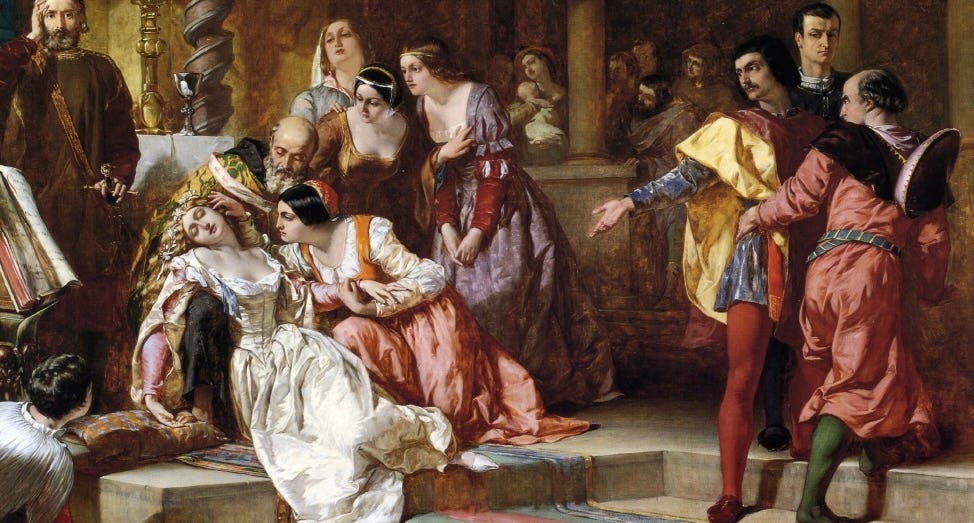
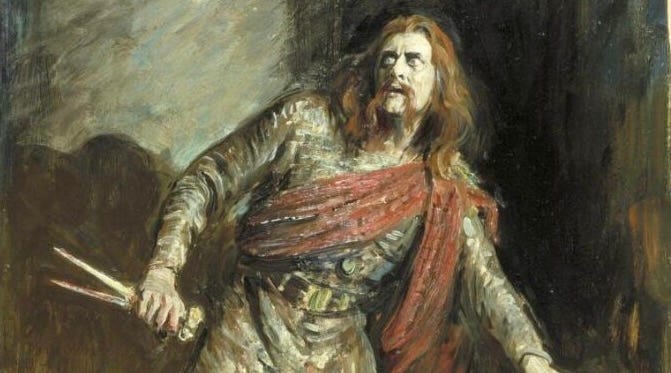

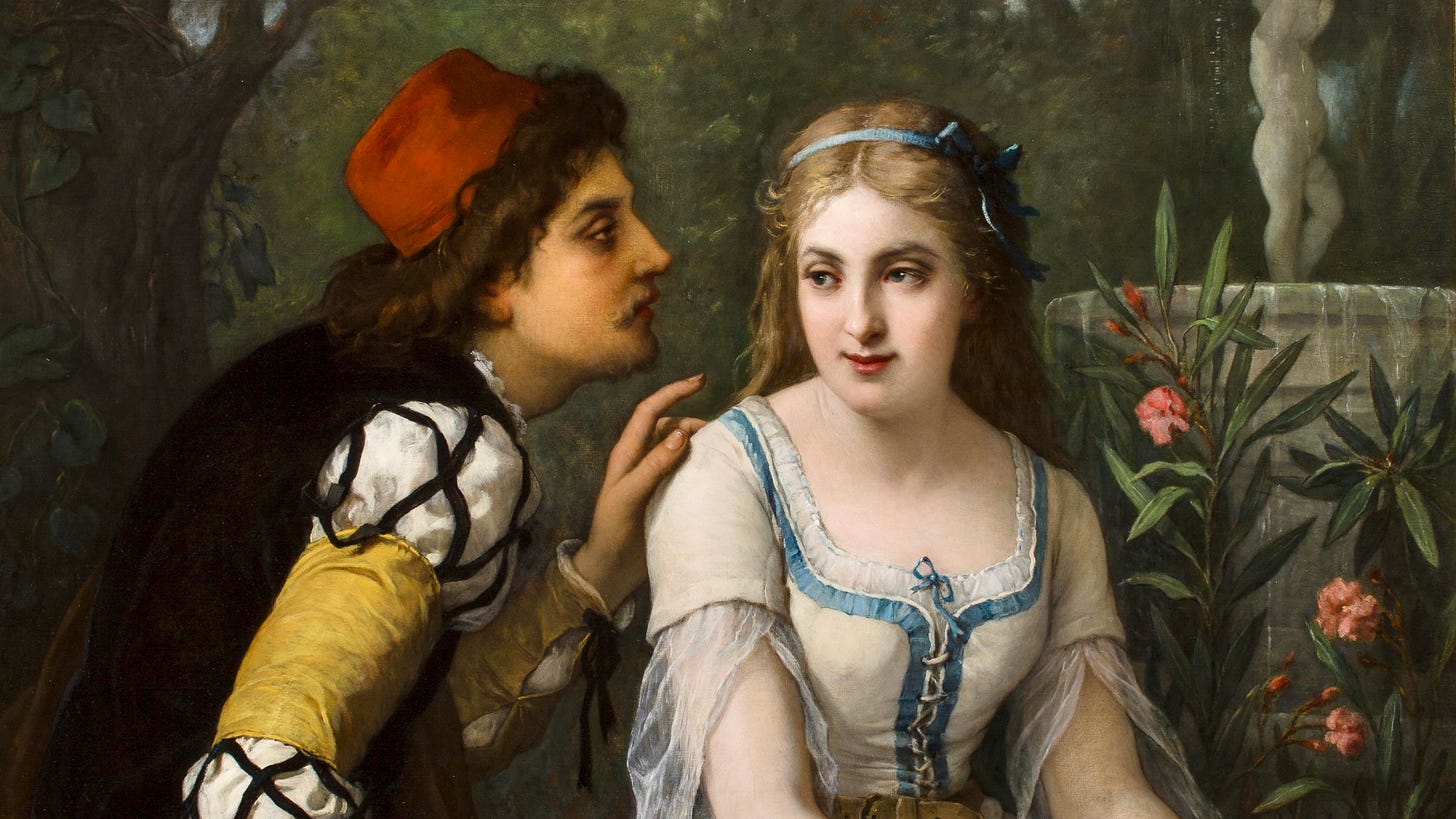
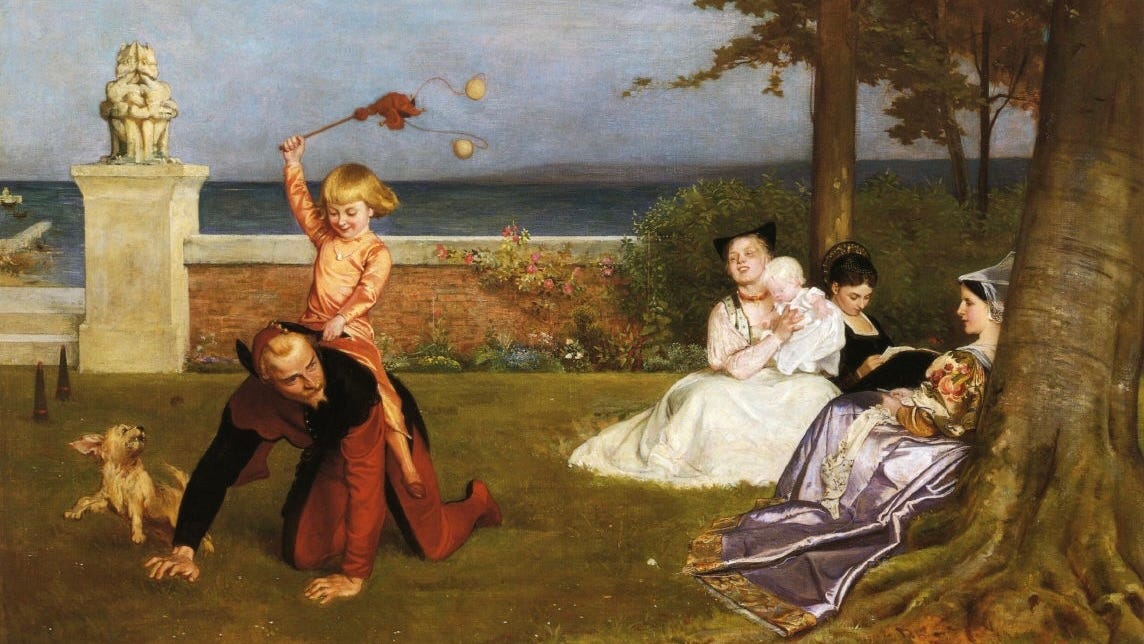
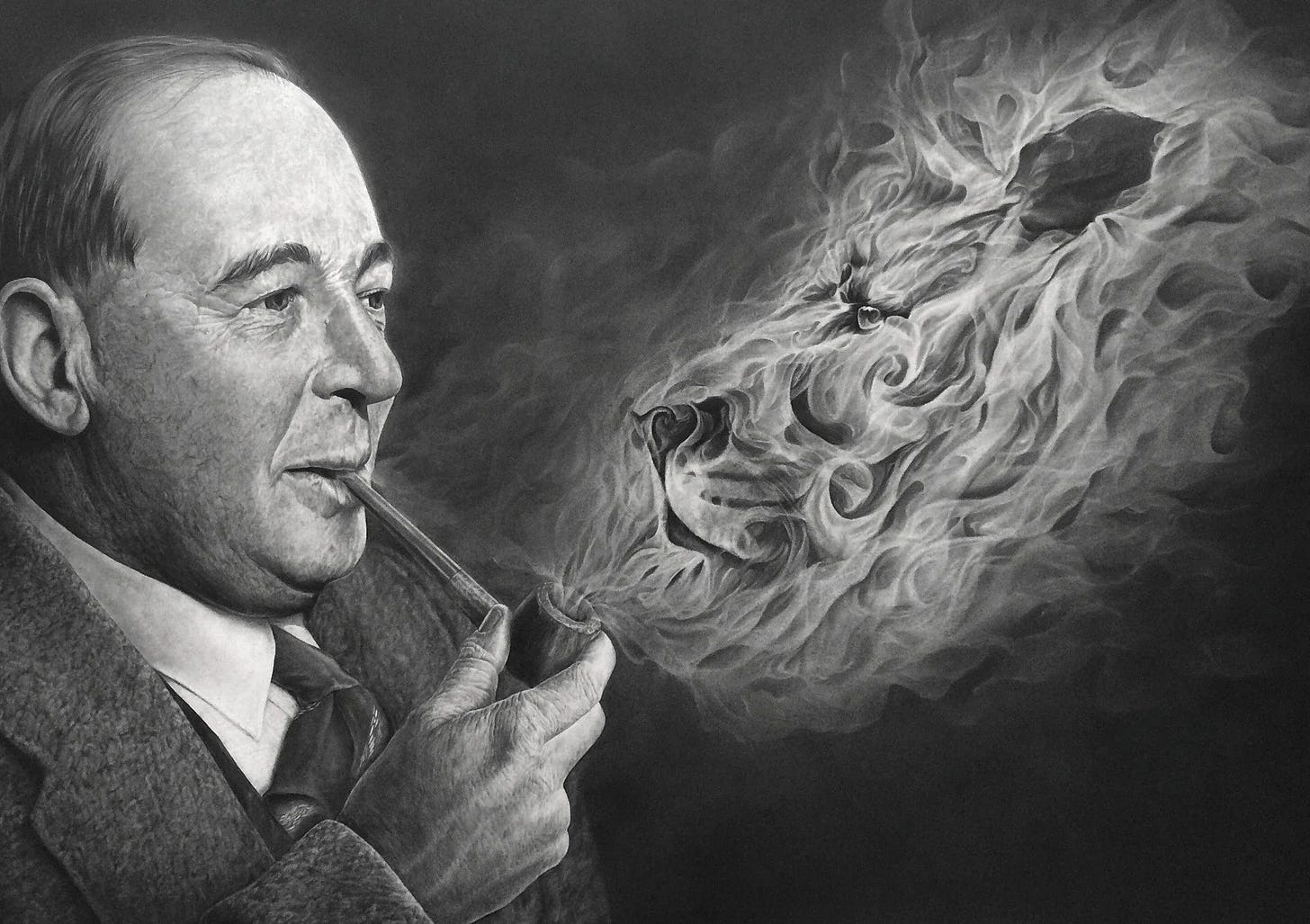
I've always really connected with Hamlet, loved the play and found a lot there. I wish I felt the same about Romeo and Juliet but the characters keep distracting me with how dumb they are. If you kill yourself every time someone doesn't show up in time, you're not gonna make it. I fully understand that I'm the problem, not Shakespeare, but jeesh I can hardly believe that those two plays were written by the same person.
These are great little summaries that make me want to read the plays again. Thanks.